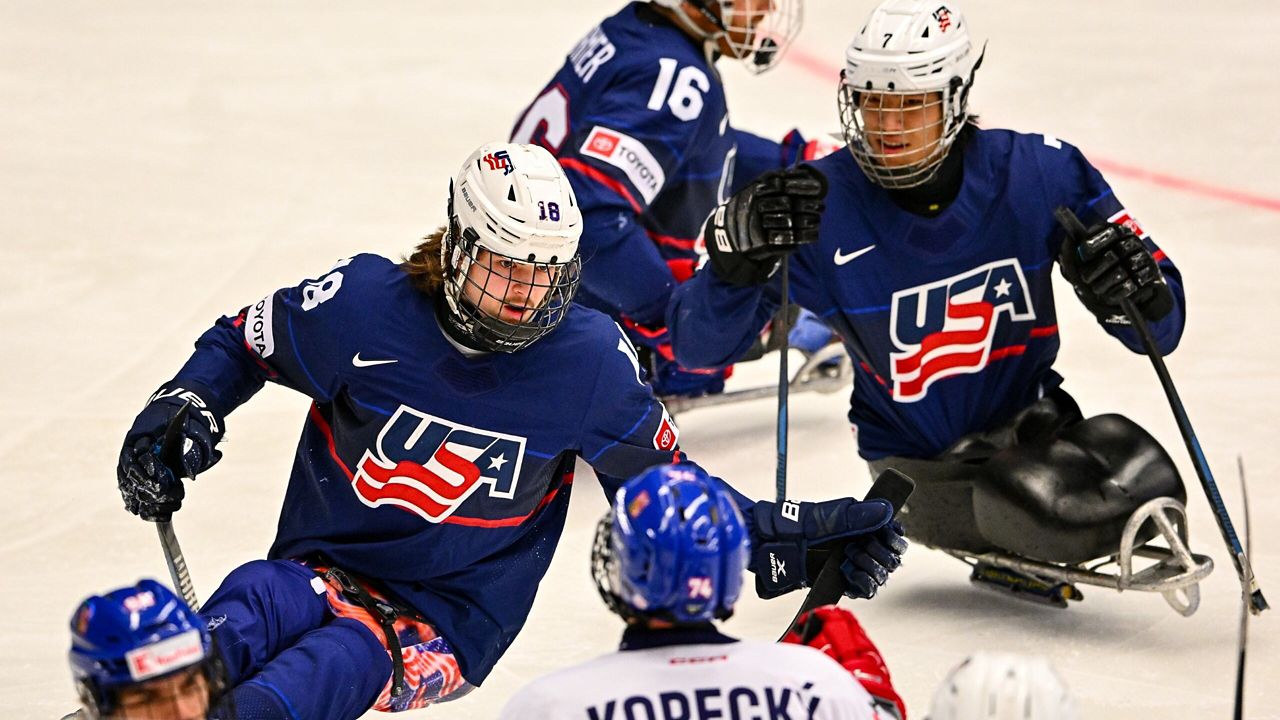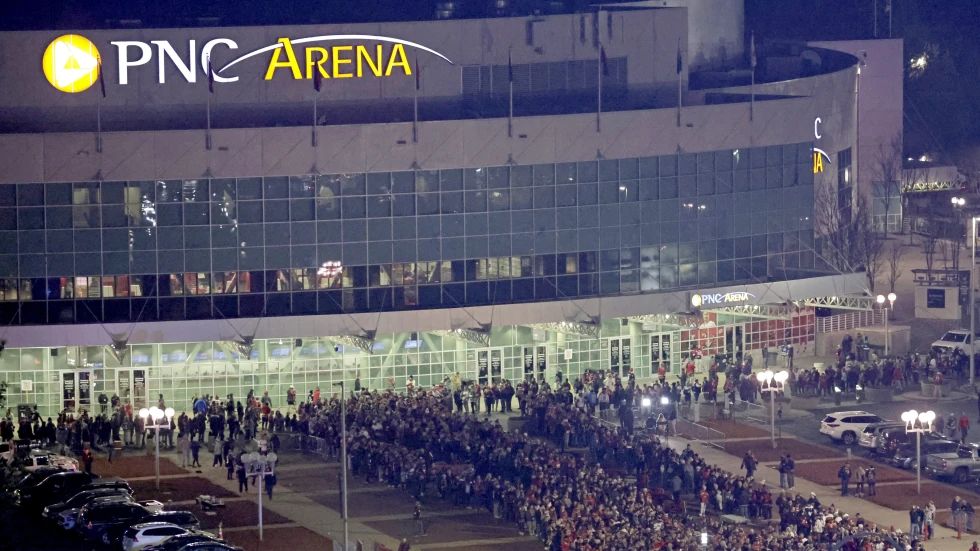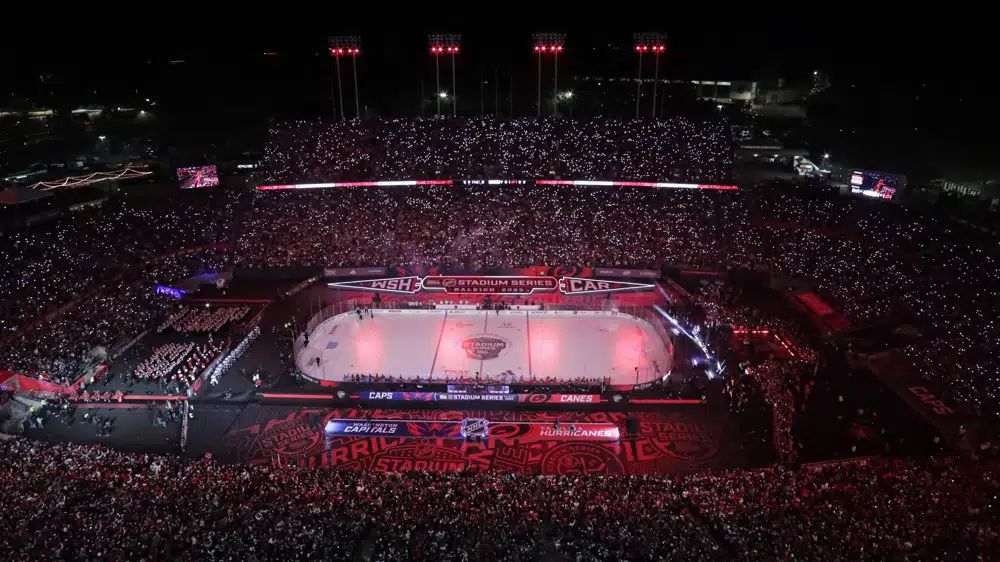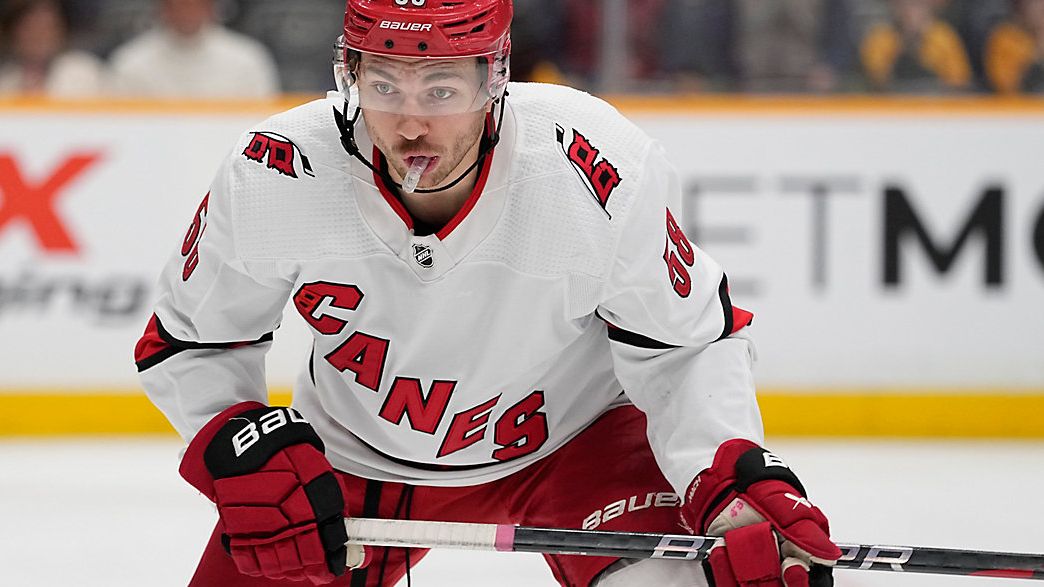RALEIGH, N.C. — He spent 10 years trying to get inside his opponents' heads, trying to anticipate their every move on the ice as an NHL defenseman. Now, Dr. Jay Harrison, a former Carolina Hurricane, is trying to get back inside their heads, only this time, as a friend and ally in the fight to support mental health.
Harrison, who holds a Ph.D. from Grand Canyon University, is the leading consultant and psychologist for First Line, the National Hockey League Players Association's newest program, which aims to educate and develop leadership in strengthening NHLPA members' mental health knowledge and skills.
Harrison is a champion for not just the league and sport of hockey, but for all who play the game. He says the creation of this program is huge for his community.
"The why is becoming more and more prevalent, not just in sports, but in society," Harrison said. "We know that professional athletes are experiencing mental health challenges, just as often, or as likely to experience them as the general population, and many experience challenges, subject to their career and the pressures of being a professional athlete."
First Line was created by the Mental Health Commission of Canada, Opening Minds and the NHLPA’s Health and Wellness Team, and was made for NHL players. This program will not only look to help member players of the association, but also their families who are feeling the strains put on professional athletes.
The program will also increase knowledge about common mental health issues, such as depression, anxiety, substance use and self-harm. It will also provide skills for offering peer-to-peer support and educate players about the stigma of mental illness and how to combat it.
"Mental health care is becoming normalized," Harrison said. "But what makes First Line particularly important is it starts to address the how. Sometimes mental health, even though we know it's important, how we go about addressing it, how we go about talking about it, how we go about facilitating access to those resources, and that can be the biggest barrier to getting the support people need. That's what First Line is designed to do, to give the players a 'how.'"
Harrison is not just fighting to support players in their struggles with mental health, but is also working the NHLPA to help create opportunities for players who are looking for jobs after hockey. Not everyone can go on to coach or be in the front office, like Carolina's Rod Brind'Amour.
"Athletes have a particularly difficult challenge navigating that dissonance that they feel because they've sacrificed their whole life to get to where they are," Harrison said. "It's a very common behavioral thing they have to do, whether it be socially, sometimes academically, or moving away from families."
Harrison says one of the biggest issues that goes with mental health and hockey is self-negotiation, sacrificing parts of themselves to get where they are. He says this doesn't need to be the case, and he's hoping First Line and the resources supplied can help with this problem.
"It can lead to negotiating mental health, it's something that I can sacrifice to the point of, the consequences of missing opportunities," Harrison said. "That's something we want to get out in front of and normalize, and understand why there's this push and pull toward that mentality, but then you start to overcome, and rethink, reassess how we determine the value of our mental health and the impact of being healthy psychologically, what it could mean to our performance going forward."
Just eight days into its existence, First Line has helped 20 NHL players, with plans to train additional players across the NHLPA. A voluntary basis throughout the 2023-24 season and beyond is already in the works and is in demand.










